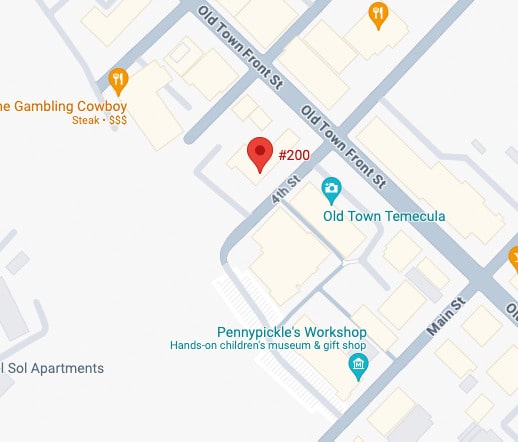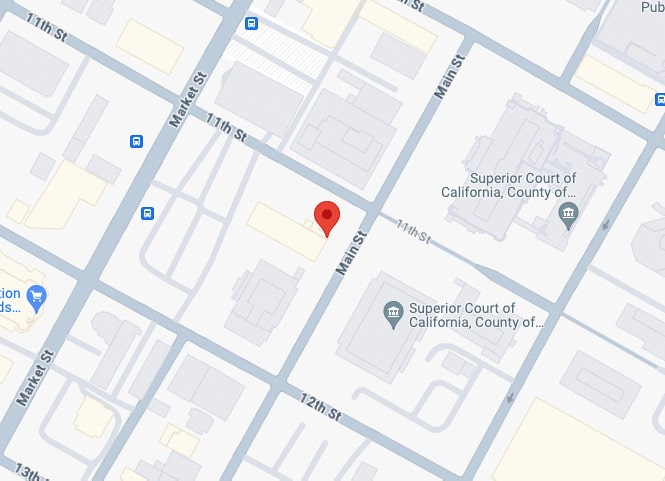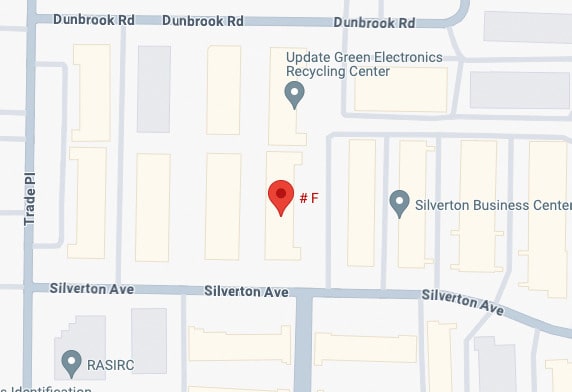When you are arrested, your options for securing release from custody could be restricted. You could spend lots of time in detention, especially if you need more money or help to settle the bail amount. Fortunately, you can contact a bail bond company and quickly get the money you need. If you're looking for an experienced Rancho Santa Fe bail bonds company, Justice Bail Bonds is an ideal option.
We provide affordable online services that are integrated with bail bond procedures. Our experts have helped many people and can also aid you in obtaining your discharge so you can get back to your loved ones as early as possible.
How Bail Bonds Work
A person is presumed innocent until found guilty beyond any reasonable doubt. Furthermore, the government tries to ensure that those accused of crimes appear for court proceedings. The intention of posting bail is to keep defendants from fleeing the jurisdiction after they are discharged.
Here is an overview of the bail process. The defendant posts the bail amount to the court (interested in money or an asset) in exchange for release from police custody. The court holds the posted bail until the case is concluded.
If the defendant adheres to the release terms and attends all court proceedings, he or she would get a refund of the property/money once the case is resolved. If the defendant fails to fulfill their bail terms, flees away, or skips bail, the court can forfeit or revoke the bail.
How a Rancho Santa Fe Bail Amount Is Set
According to the 8th Amendment, the amount of bail should be determined by how likely the defendant will appear in court. The higher the amount of bail, the more the defendant will lose when violating their bail terms. The amount imposed should be sufficient to achieve this purpose but not so high that the defendant cannot afford to settle. The judge can determine the bail amount that matches the requirements.
Bail Schedules
Every county in California has a bail schedule. This schedule specifies the bond amounts for various charges. For example, a bail schedule for less serious offenses, like petty theft, would be $10,000. On the other hand, when it involves serious criminal charges, such as murder or manslaughter, the bail schedule would be $250,000.
If you want to obtain a discharge from detention immediately without having to wait for the arraignment hearing, you could post the bail sum specified in the schedule. Usually, the amounts indicated in the schedule cannot be changed by jail officials. On the other hand, judges are free to set the bail amount at any level. They could also choose to deny bail or discharge the accused on their own recognizance.
You can be released from custody on your own recognizance if you agree to appear in all future court sessions. In simple terms, the judge decides to release you from police custody in exchange for your assurance and a signed agreement that you would appear for all scheduled court appearances. The judge would impose conditions for your release.
Bail Proceedings
The court will set a court hearing to determine the amount of bail. The bail schedule serves as the starting point for determining the bail amount. The judge should also consider various case details before determining the final amount.
Usually, the judge would take into account the following elements:
- The nature and severity of the alleged offense
- Your criminal history
- Your likelihood of fleeing before going to trial
- Whether you pose a threat to the public, the alleged complainant, or yourself if you are released
The judge could also take into account your financial ability to meet the set bail amount. California law compels judges to consider this, so your freedom isn't tied to your wealth or lack thereof.
Several factors have nothing to do with the offense for which the defendant is being charged with. As a result, two defendants accused of the same crime could post different bond amounts.
Different Ways of Posting Rancho Santa Fe Bail
Once the magistrate has set the bail, you'll need to post bail to secure a release from detention. Although the acceptable methods of posting bail vary by jurisdiction, you can do so by:
- Directly submitting your cash bail amount to the court
- Engaging the services of a Rancho Santa Fe bail bond agent to make payments on your behalf
- Surrendering a property's lien to the court
The advantage of a cash bail or property bond is that the court would refund you once the criminal case is completed. Bail bond companies often charge a 10% non-refundable fee. In other words, if the total bond is $40,000, you'll pay the bondsman a fee of $4,000 in such a case. Bail bonds, on the other hand, are great for people who don't have enough money to post their bail.
If the judge or prosecution team believes you obtained the bail amount illegally, the court would suspend your release and set a court hearing to resolve the situation. Feloniously acquired indicates that you gained the bail through an illegal transaction, conduct, or incident that constitutes a California felony.
Therefore, it's your job to prove that you obtained the funds legitimately. If you succeed in convincing the court, the bail will be accepted by the judge. If not, the magistrate would refuse to take bail and could even increase the bail amount. If you have the means to pay the cash, using a bail bonds firm can help you keep a low profile, particularly if you're accused of high-profit drug sales or human trafficking.
Attending Court Hearing Vs. Posting Bail
It would be preferable if you assessed the cost of staying in police custody against the cost of walking free. Using a bail bonds company incurs a non-refundable fee, usually 10%, which might be hefty. However, remaining in custody could have implications and costs, including lost employment, time, and income. While you wait to see the magistrate, your defense lawyer could be able to convince the magistrate to lower your bail or discharge you on your own recognizance.
Before making a choice, it would be wise to evaluate the options available to you and your current situation.
Bail Conditions
Bail terms and conditions are often established to ensure you appear for court proceedings and safeguard the community.
Some of the common bail terms include:
- Adhering to all laws
- Stop using drugs, consuming alcohol, and taking part in random tests
- Not owning or possessing any weapon
- Avoiding certain people or locations
- Adhering to curfew
- Obeying any restrictions on travel
- Obtaining or retaining work
- Giving up your driver's license or passport
The judge will take into account several considerations while setting the proper bail terms, including:
- Your criminal history
- The likelihood of fleeing the jurisdiction
- Your physical and mental condition
- The gravity of the offense
- If you have a history of substance abuse
Normally, the judge will set requirements based on the facts of the case. For example, if you are accused of assault, the courts would order you to refrain from contacting the complainant while you're out on bail. If you are caught for DUI, the court would condition your discharge on you installing an ignition interlock device and submitting to random drug and alcohol testing.
Although the magistrate can determine an appropriate bail condition under the law, several limitations exist. Any bail term that unfairly restricts your constitutional rights would be rejected.
The Consequences of Breaching Your Release Conditions
When a defendant fails to abide by their bail condition, the magistrate has several options, including:
- Issuing an arrest warrant
- Revocation of the bond and re-arrest of the defendant
- Imposing new or more stringent bail conditions
- Issuing a warning
- Increasing the bail
- Holding the defendant in contempt of the court
The judge's decision will be based on the facts of the case. A minor offense would result in less severe penalties, such as a warning. On the other hand, if you perpetrate a more serious offense, like threatening eyewitnesses, the judge would cancel your bail.
Bail Revocation
Bail can be revoked if the defendant fails to show up in court or skips bail. That implies that you lost the right to freedom while awaiting trial. The judge would issue an arrest warrant if the defendant fails to attend the court proceedings. The warrant will remain valid until you are apprehended.
Furthermore, your bail would be revoked for the following:
- Perpetrating a crime while on discharge, regardless of whether you're found guilty of the offense or not
- Infringing other bail terms
Bail Revocation in Federal Court
Bail revocation methods are available in both federal and state courts. The Bail Reform Act of 1984 governs the bail bond process in the federal court. Assume a person infringes a rule while discharged on bail.
No bail restriction is presumed to be able to protect the neighborhood. The accused has the opportunity to refute or contest this assumption. The judge can set more stringent or new bail conditions or revoke the release entirely.
Furthermore, other FTA consequences include bail bond forfeiture, fines, and consecutive and extra time behind bars.
California Bail Revocation
Skipping bail is considered an offense under California law. If a defendant skips bail, they would be charged with both the underlying offense and the FTA charges. If you are found guilty of a misdemeanor, the FTA would likewise be treated as a misdemeanor. This is punishable by up to six months behind bars. If charged with a felony crime, the FTA attracts a maximum sentence of three years behind bars.
Bond Forfeiture
Once the court overturns the bail, they will forfeit your Rancho Santa Fe bail bond. This means you should turn over any property or asset used to obtain your freedom to the court. The court would issue a notice of bond forfeiture to both you and your bail bondsman. Before the revocation is finalized, the court would allow the bail bond company 180 days to return the defendant to prison.
Sometimes the bail bond agents would use bounty hunters to track down and arrest the defendant.
- You didn't want to go to your court hearing
- You were heading somewhere else
- You skipped your court hearing because you thought you were innocent
Bail Reinstatement
Even after bail has been forfeited, it's possible to set the bail aside through remission. The remission motion asks for reimbursement of the property or assets forfeited. Usually, you have a certain amount of time from the forfeiture date to file the motion. It is up to the trial court to decide whether or not to grant relief from forfeiture.
How to Recover Bail After Your Case Is Dropped
While having your loved one taken into custody by the police is distressing for several reasons, posting bail could be a major stressor. Things can soon become expensive with court expenses, lawyer fees, and bail amount to be sorted out. Consequently, you could be concerned if you would obtain a refund for your bail if the case is dismissed. The solution is primarily determined by how you posted the bail amount.
When you engage a Rancho Santa Fe bail bonds firm, you won't receive a refund for the premium, irrespective of the result of the case. This is because the bail bond firm paid your full bail on your behalf.
If you paid the requisite bail amount to the court, you would receive a refund when the case is closed. Once the charges are dismissed, the court would issue an order for a refund. In most cases, your refund check will arrive in the mail within six weeks. You will need to restart the process if it takes longer than expected.
The Aftermath of an Arrest
Getting arrested is a traumatic experience that sets a series of criminal charges in motion. The section below covers what happens immediately after an arrest.
-
Citation or Incarceration
It's considered an arrest if the police take you into custody for a while, no matter how brief. The arresting officer would then normally transport the defendant to the police station. Officers could sometimes cite, arrest and free someone accused of a misdemeanor offense. In this situation, the accused would be released from police custody. However, he or she should appear for a court hearing.
-
The Booking Process
Booking comes after the law enforcement officers have transported you to the station. The police officer will enter details about your arrest and personal information into the database. They'll capture your photo and take fingerprints. Police officers could also collect DNA samples, especially if you're accused of a serious offense like a felony. Normally, the DNA sample is obtained from a swab of the accused's inner cheek and recorded in the database. Finally, you'll be allowed to make a phone call.
-
Remain in Custody or Get Bailed Out
Several individuals post bail once they are sent to police custody. Defendants, in this case, are usually assigned a later court hearing. If the offense is serious, no bail is set, or the bail set on the schedule is too expensive to pay, the defendant will be kept in custody until their first court appearance.
-
Complaint and Court Arraignment
Most arrests take place without arrest warrants (the prosecution first gets involved after the arrest). The prosecutor examines the police report and other information to determine whether to file a criminal complaint. Once the prosecutor files the criminal charge complaint, the arrested person is elevated to an offender.
The first court appearance is known as an arraignment. The arraignment hearing of an individual freed from detention can take place a few days after their arrest. For defendants still in detention, the first arraignment would occur within 48 days of their arrest.
At the arraignment hearing, the magistrate will:
- Inform you of your right to seek legal counsel and begin the process of assigning a public defender if you cannot afford to engage a lawyer.
- Notify you of your charges.
- Address your detention situation. The magistrate can set the bail amount or release the accused based on his/her own recognizance.
The next steps in your case will be determined by the circumstances surrounding the case, the laws of the jurisdiction, and the nature of the alleged offense. If there is reason to believe you perpetrated the alleged crime, the prosecution should be able to prove it in court. Your case can only proceed with the prosecutor's determination. The defendant could also decide to plead at a later stage.
Find a Rancho Santa Fe Bail Bonds Company Near Me
The unexpected cost of posting bail can be devastating in the modern world, where finances are so crucial. Hiring a professional Rancho Santa Fe bail bonds company can make a significant difference in your discharge and case resolution if you've been arrested.
We at Justice Bail Bonds can ensure you're released from detention as soon as possible. Even if you are unable to raise the money, we can still come up with a flexible payment schedule that you can manage without putting yourself in further debt. Call us at 951-445-4155 to speak with one of our professionals.









